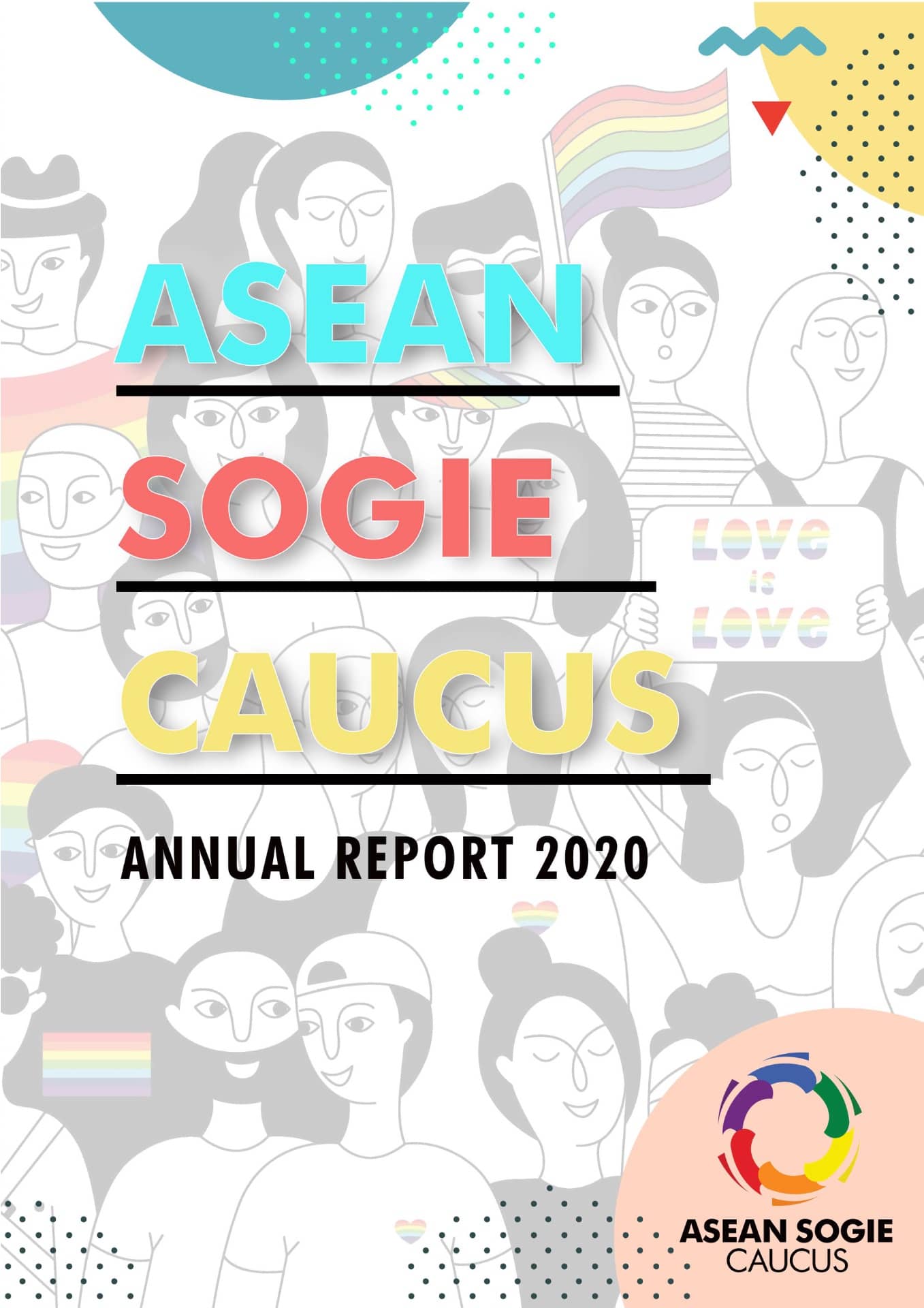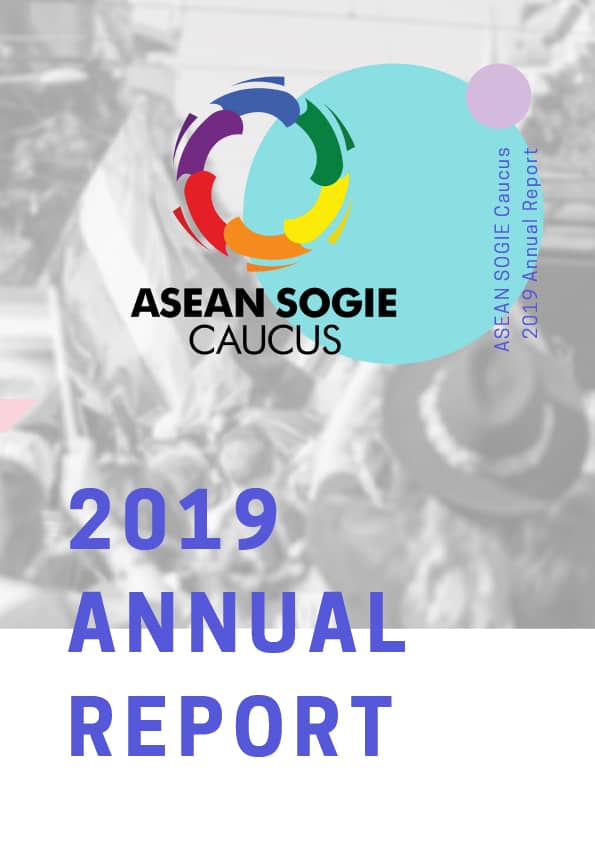Welcome to the Annual Report section, where you’ll find comprehensive insights into our organization’s yearly performance, strategic initiatives, and financial health. Each annual report provides an in-depth look at our achievements, challenges, and milestones over the past year, showcasing our commitment to transparency and accountability. Here, stakeholders can explore detailed financial statements, key performance metrics, and narratives on how our efforts are driving positive impacts and growth.

2020 is perhaps the most challenging year for people worldwide and COVID-19 has brought about extreme changes across the globe, amplifying the challenges that LGBTIQ persons faced in ASEAN. It has forced many of us to adapt and adopt new strategies to survive the isolation and discrimination that is unique and specific to our communities. Instead of bowing down to the immense problems created by the pandemic, many LGBTIQ groups with the support from the ASEAN SOGIE Caucus, reacted quickly to address the ordeals faced. After all, surviving in defiance against all odds has always been the core strength of our queer communities and as Southeast Asians who have often had to face institutionalized discrimination from authoritarian governments in the region.
This year’s report demonstrates the ASEAN SOGIE Caucus’ impact from the local to the regional and how a centralized network supporting Southeast Asian LGBTIQ groups doing important work is so essential in propelling the movement forward. In many of our programs, we strived for quality and depth over quantity and being uncritical. The aspirations and actions peppered throughout the report set in motion will be a corner stone for the human rights of LGBTIQ persons in the region and influence generations to come.
However, LGBTIQ rights remains underfunded and uneven in Southeast Asia on so many levels; where many funders often do not understand the diversity of the region and pay scant attention to it. In spite of these issues, we will continue to disrupt the status quo and continue to queer what Asian LGBTIQ activism looks like in the region.
At the ASEAN SOGIE Caucus, we are very proud of what we have achieved over the year despite the upheavals of political and pandemic uncertainties. Together with our partners and LGBTIQ communities, we look forward to building a post pandemic future that is dynamic, resilient and feminist.

Looking back, I am overwhelmed with pride for how far we have come. In May 2011, LGBT focused NGOs invited us to gather in Jakarta for the ASEAN Civil Society Conference/ASEAN People’s Forum, and a group of ragtag activists responded to the call. We did not receive a formal invitation from the conference organizers, nor were we cushioned by a palette of financers who believed in LGBT rights. We were poor but rich in spirit. Little did we know that this was just the beginning of our fight to bring LGBT rights to the forefront in ASEAN.
There were times when the journey was painful and heart breaking. I have witnessed how civil society groups and governments discriminated against and excluded us. We learned very early on that many viewed the support for LGBT rights as ‘costly’ in highly conservative region filled with authoritarian tendencies. Erasing our humanity was a matter of expediency. And yet, this has never deterred us.
In the 8 years since we started, the ASEAN SOGIE Caucus has confronted these challenges with poise and grit. With its hardworking secretariat, the organization has gone above and beyond to turn the dream of freedom for LGBT persons in ASEAN into a reality. Together with grassroots LGBT activists across the region, we have attained incredible achievements and visibility. Our loose network of LGBT activists has grown into a powerful advocacy body that can no longer be ignored.
In this 2019 annual report, the ASEAN SOGIE Caucus showcases the amazing work it has achieved; from its relentless engagement with ASEAN human rights mechanisms; mainstreaming LGBT intersectionality into the ASEAN civil society communities work; creating lifelines to grassroots activism with its programs and support; and finally applying a reflexive feminist lens to its membership and organizational capacity to sustain itself for years to come.